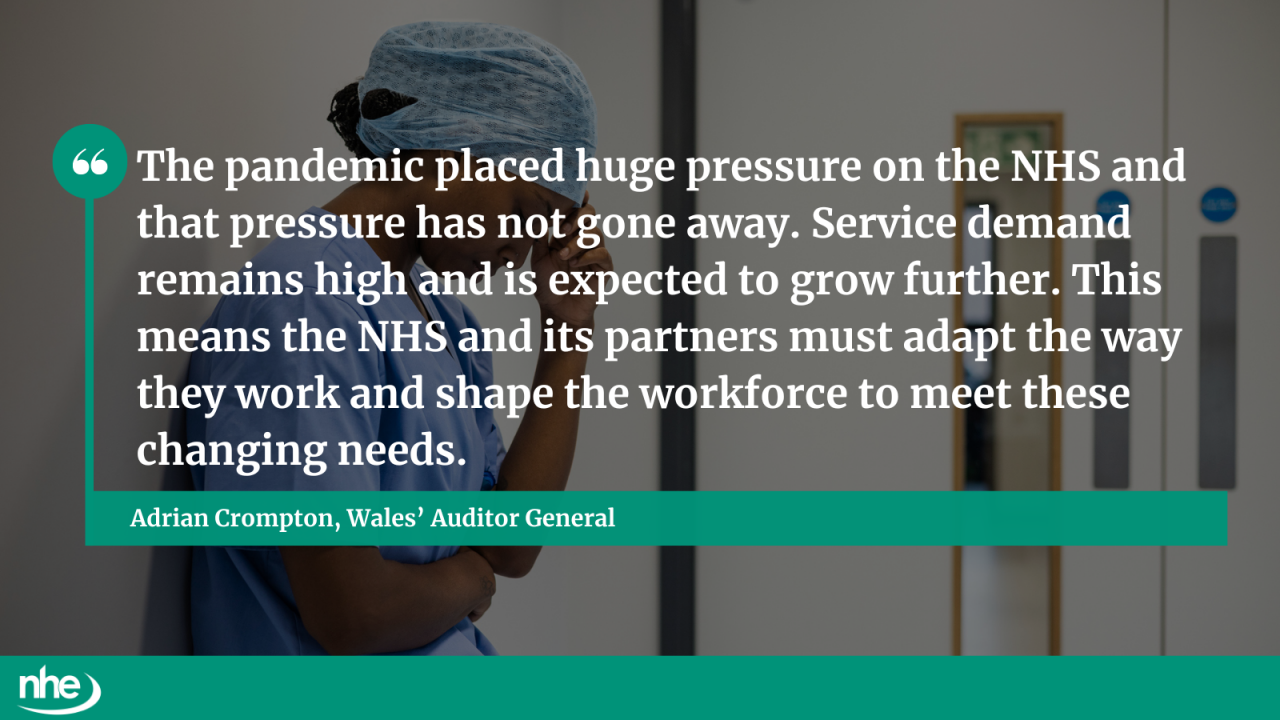NHS Wales continues to grapple with significant workforce challenges, despite notable improvements in certain areas, according to a recent report from Audit Wales.
The report, published today, underscores the ongoing issues of recruitment and retention, as well as the heavy reliance on costly agency staff to fill workforce gaps.
The report highlights several positive developments within NHS Wales, including advancements in sickness absence management and a reduction in the use of agency staff. The NHS workforce has also seen growth to meet the rising demand for healthcare services. However, these improvements are overshadowed by persistent challenges such as high staff turnover, vacancies, and agency staff costs.
The growth in the NHS workforce, while necessary to address increasing demand, has led to a substantial rise in staffing costs. Since 2017-18, these costs have surged by 62%, reaching £5.23 billion in 2023-24. This financial burden raises concerns about the sustainability of continued workforce expansion in the current economic climate.
Audit Wales’ Auditor General, Adrian Crompton, said:
“The NHS in Wales is continuing to face significant workforce challenges. The pandemic placed huge pressure on the NHS and that pressure has not gone away. Service demand remains high and is expected to grow further. This means the NHS and its partners must adapt the way they work and shape the workforce to meet these changing needs.
“The report points to some positive developments but also for a need for important action in a number of areas, not least in the development of a stronger and more coherent national approach to workforce planning. I see this as crucial in developing a health and care workforce that is motivated, resilient and appropriately skilled to ensure it is delivering sustainable care of the highest possible quality.”
A critical issue identified in the report is the absence of a national workforce plan. The lack of a cohesive strategy hampers progress and creates uncertainty about the future shape of healthcare services. The report calls for the Welsh Government to collaborate with NHS Wales leaders and key partners to develop a comprehensive workforce plan that addresses:
- Transitioning Workforce and Service Models: Shaping services around population health improvement and community-based management of multi-morbidities.
- Matching Future Demand and Supply: Planning for specialist care needs with a sustainable acute staffing model.
- Integrated Workforce Planning: Developing a sustainable workforce model for social care.
- Retention of Trained Staff: Ensuring that more staff trained in Wales remain in Wales.
- Educational Needs and Funding: Outlining medium to long-term educational requirements and securing necessary funding.
The report also highlights the complexity of current workforce planning arrangements, compounded by unclear system leadership roles. Health Education and Improvement Wales (HEIW) plays a crucial role, but the responsibilities of other organisations need to be clarified. Effective leadership is essential to develop and implement the national workforce plan.
Addressing the workforce challenges in NHS Wales requires a multifaceted approach, including clear leadership, comprehensive planning, and sustainable funding. While there have been positive strides in certain areas, significant work remains to ensure that NHS Wales can meet the growing healthcare demands of the population.

Darren Hughes, Director of the Welsh NHS Confederation, also responded to the report:
“We welcome Audit Wales’ report on NHS workforce challenges. It’s no secret that the workforce are the lifeblood of the NHS and social care services.
“NHS leaders have long called for the Welsh Government to invest in a fully costed Long-Term Plan to deliver a sustainable NHS and social care workforce if we are to meet the needs of the people of Wales now and in the future. This will enable the implementation of multi-professional, digitally enabled, motivated, engaged and valued workforce across the NHS and social care.
“It’s important to recognise the mammoth efforts of NHS staff and leaders to reduce the reliance on agency staff and fill vacancies. However, while the NHS workforce continues to grow, this is resulting in continually rising staffing costs and Audit Wales rightly questions the sustainability of this in the current financial climate.
“NHS leaders believe the future of the NHS’ workforce lies in the multi-disciplinary teams required to respond to the changing needs of the population and growing demand on health and care services. Now more than ever we must strive to work together across NHS and social care boundaries to find long-term solutions to recruitment and retention. But with the absence of a long overdue, government-led national plan for the sector and lack of clarity around system leadership arrangements, health and social care leaders will struggle to deliver the workforce needed to meet the needs of the population.”
Image credit: iStock



















